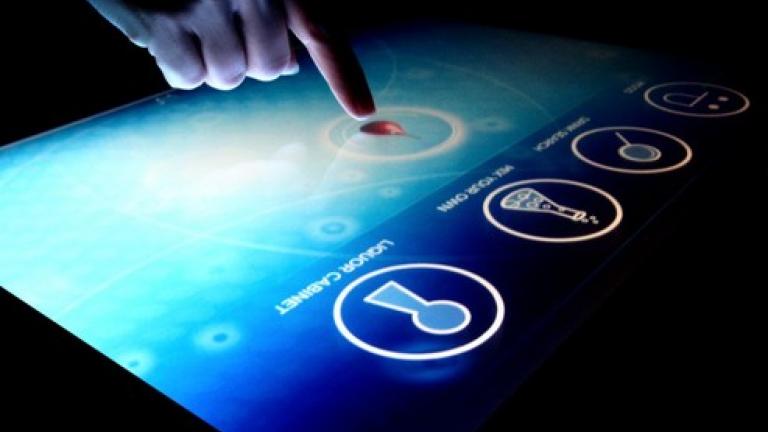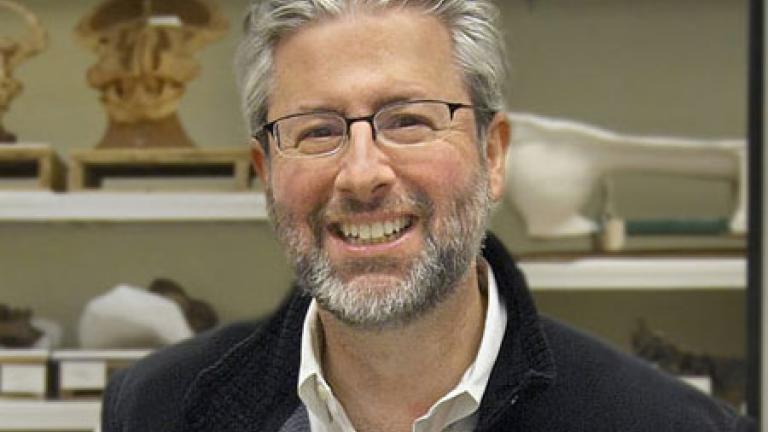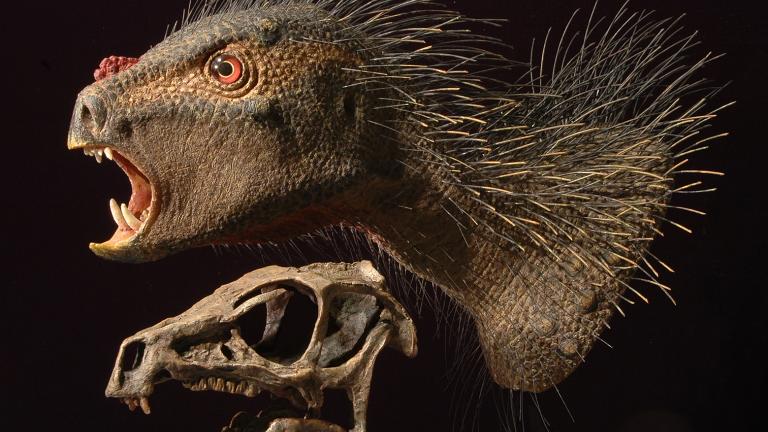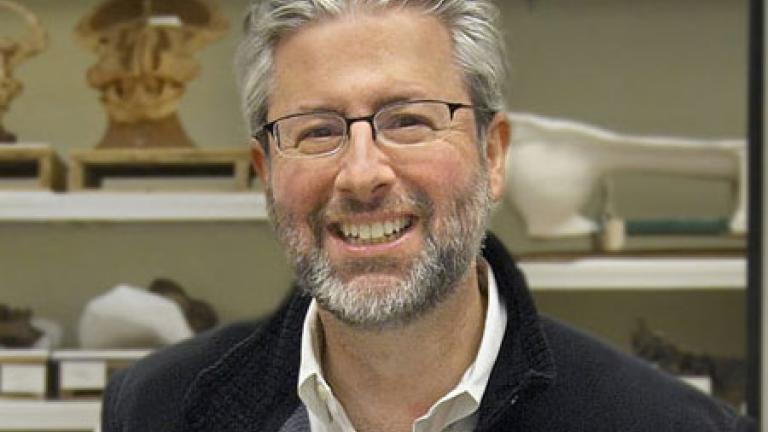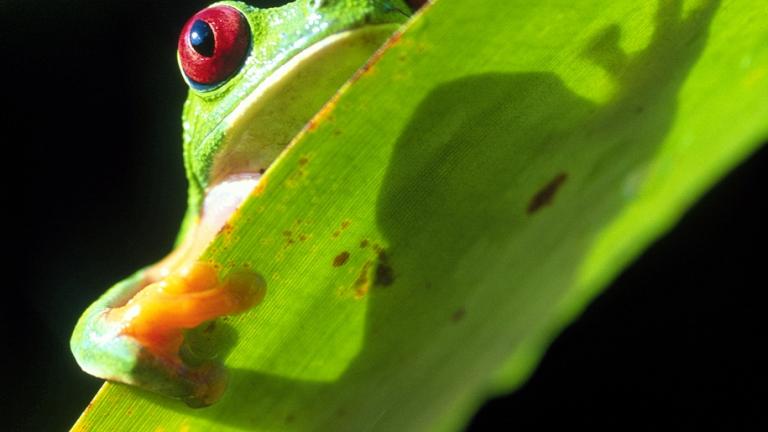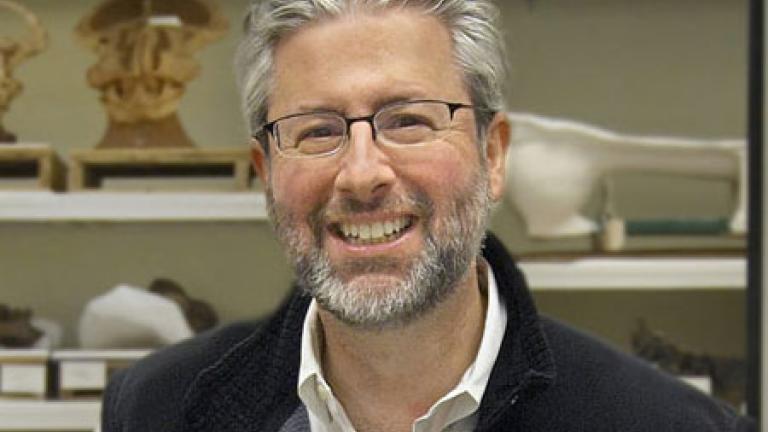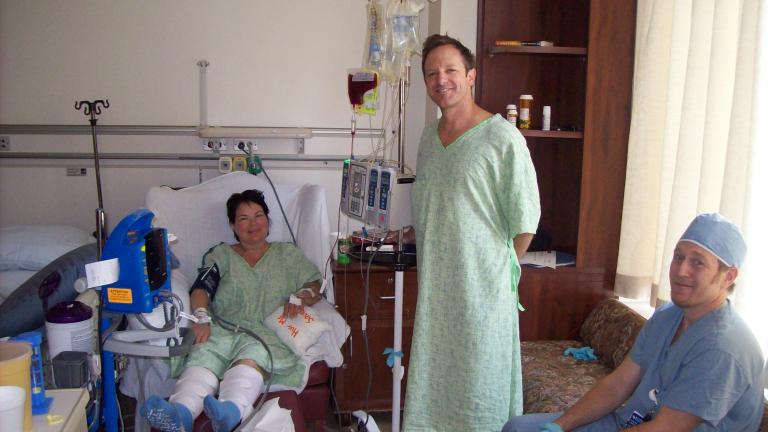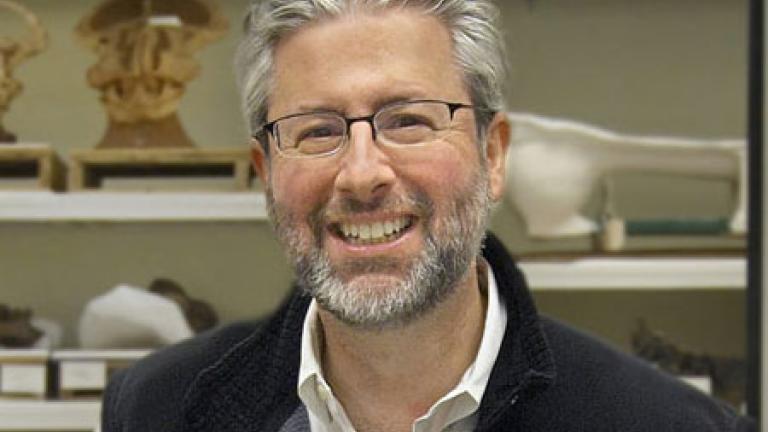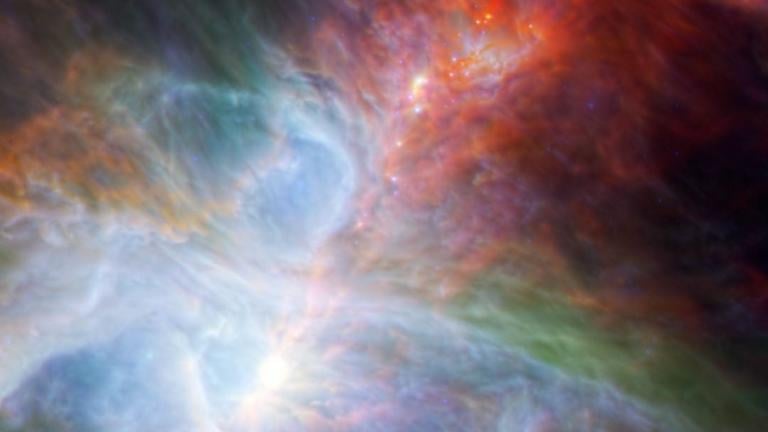Could the touchscreen on your smartphone or tablet actually touch you back? Ash-har Quraishi takes a look at the technology that could add more dimension to how that flat plate of glass feels.
Scientific Chicago
World's Most Powerful Camera, Giant Viruses, Vanishing Electronics, Faithful Coyotes and Nobel Prize Winners
Our science guy, Neil Shubin, explores Chicago’s connection to the winners of this year's Nobel Prize for chemistry, giant viruses, and more in this edition of Scientific Chicago.
It's a bird! It's a porcupine! It's a tiny fanged dinosaur? The Chicago paleontologist who discovered the new species joins us to talk about the odd dinosaur.
A new drug shows promise in the treatment of social withdrawal for people with Fragile X syndrome, and potentially for autism patients.
“Brain Clock”, Microbiomes, Levitating Pharmaceuticals, Smell & Dark Energy
Our science guy, Neil Shubin, explains how what appears to be a magic trick is helping scientists develop pharmaceuticals with fewer side effects. He has that story and more on tonight's Scientific Chicago.
Farmers and scientists say this year's corn yield will be the lowest in more than a decade. We take a look at how genetic engineering may have tempered the effects of this year's drought.
A new study by a Field Museum biologist shows that despite protections, life inside nature reserves can be affected by the environment surrounding the reserve. Steve Goodman joins us to tell us more, and how this affects Chicago.
Mosquitoes, Spatial Learning, Lefties, Higgs Boson Particle
Why are there so few lefties? How can we help our children become better in math? And what's all the hype about the Higgs boson particle? Our science guy, Neil Shubin, joins us to help answer these questions and more in tonight's Scientific Chicago.
Physicists at the largest particle accelerator in the world are set to announce their findings on the Higgs particle on Wednesday. Fermilab's Rob Roser joins us to discuss Fermilab's own results and what to expect tomorrow.
A supercomputer at Argonne National Laboratory, code-named Mira, is the third fastest in the world, according to new rankings. We speak with the scientist in charge.
A rock from the fireball that caused a sonic boom as it fell in Nevada last month will join the Field Museum's meteorite collection on Tuesday.
We show you how researchers are tracking cancer rates in the endangered Mexican Gray Wolf in tonight's Scientific Chicago.
Preventing the rejection of organ transplants. Could new research hold the key to long-term success? Ash-har Quraishi takes a look in this edition of Scientific Chicago.
Could the touchscreen on your smartphone or tablet actually touch you back? Ash-har Quraishi takes a look at the technology that could add more dimension to how that flat plate of glass feels.
Microbiome Project, Bees, Music Training & Higgs Boson
We go inside the brains of bees. Our science guy, Neil Shubin, joins us to talk about bee personalities, the impact of music training on aging, and more news in Scientific Chicago.
If there is extraterrestrial intelligence out there, the Adler Planetarium wants your help in finding it. Astrophysicist Chirs Lintott tells us how you can search for E.T. on your computer.

